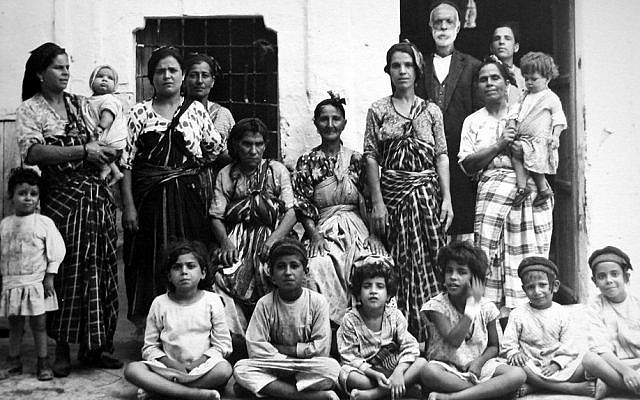Right after the creation of the Jewish State of Israel, the Arab countries surrounding the new state waged war and called on Arabs in the Middle East and North Africa to join. North African Arabs answering the call were passing through Tripoli en route to join the battle and some of them stopped to wage one in the Libyan city. From all accounts, a mob of Arab rioters went into the Jewish Quarter in Tripoli's old city and began attacking Jews. Apparently, the mass attack followed an argument between an Arab and a Jew over the creation of the Jewish State that had escalated into extreme violence. The shocking part was that the Tunisian Arabs, who were accepting of Jews for the most part, joined in. Rioters were heard shouting, “If we cannot go to Palestine to fight Jews, let’s fight them here”
The Jews of Libya had already suffered under Italian rule during World War II and shortly after it ended when a bloody pogrom in Tripoli claimed many Jewish lives in 1945.
In 1948, the Arab–Israeli War (Israel's War of Independence) had begun a month earlier following the proclamation of the State of Israel. Libya, at the time was controlled by Britain as well, and the Arab country did not officially take part in the conflict. According to British authorities in Libyam the proclamation of the State of Israel which was the catalyst for the Arab-initiated war had "aroused among the Arabs less interest than was expected" in Tripoli.
However, according to the report of the British Chief Administrator in Libya, Tripoli became the main transit point for both Tunisian and Algerian volunteers on their way to fight for Egypt against Israel. Egypt had announced that no more volunteers would be accepted, but many ignored Egypt's declaration and wanted to fight anyway. Tripoli also became a fixed point for "young Zionists" from the North African countries who were on their way to fight for the newly formed Jewish State.
The rioting began in Tripoli on June 12th. This time, unlike the previous Tripoli pogrom that happened after the second world war, the Jewish community of Tripoli had prepared to defend themselves. Libyan-based Jewish Defense units, similar in nature to the Jewish Defense League (JDL) in America during the 1970s and 80s, fought back against the Muslim rioters.
According to the British reports, the rioting broke out spontaneously. The Jewish defense measures had been prepared beforehand, with the British noting signs in Hebrew stating "It is good to die for one's country", and stated that during the riots the role of the Jewish organization "was not purely for defense". According to British sources, "determined parties of young Jews battled with the police in efforts to break out of The Old City in order to attack Arabs where they live", essentially taking the fight to the Arab community and moving it away from where the Jews were living.
When it was over, fourteen Jews had been killed and over 300 Jews lost their homes to fire and vandalism in two days of rioting. The riot was the second against the Jewish community of Tripoli in less than three years. From November 4-7, 1945, the Jews of Tripoli had been subjected to attacks following an anti-Zionist demonstration in Egypt. In those attacks, 130 Jews were killed and 813 Jewish businesses were destroyed.
There were fewer casualties in the June 1948 riots in part because Jewish defense groups had been established after the 1945 attacks. Israel Gur, a member of the Palmach in Palestine, had been sent as an emissary to Libya in 1945. During his two years in the country, Gur trained Libya’s Jews in defense tactics in order to be better prepared for future violence. The response of the Jewish defense groups combined with the intervention of British police successfully limited the bloodshed.
The 1948 riots convinced the majority of Libya’s 35,000 Jews that there was no future for them in the North African Muslim nation. Between 1949 and 1952, more than 31,000 Libyan Jews immigrated to Israel with the assistance of the Jewish Agency and Joint Distribution Committee.


